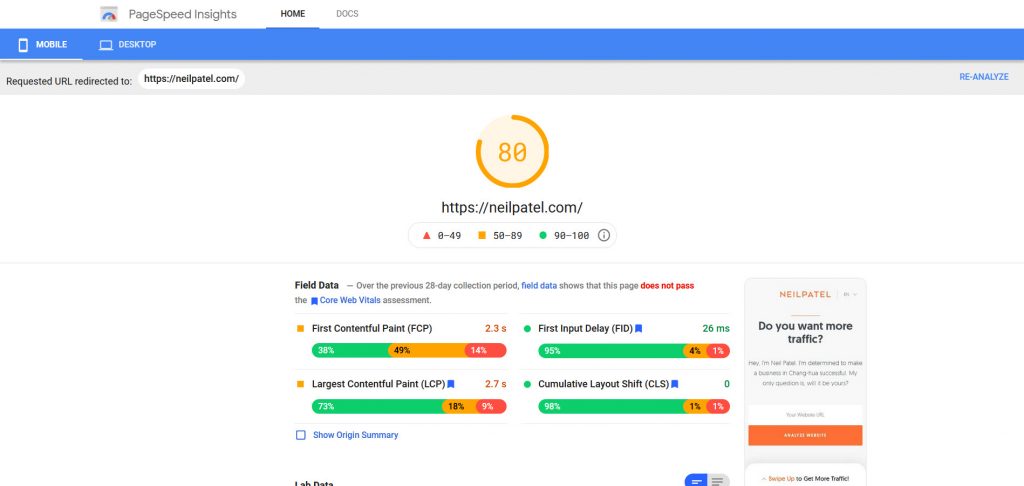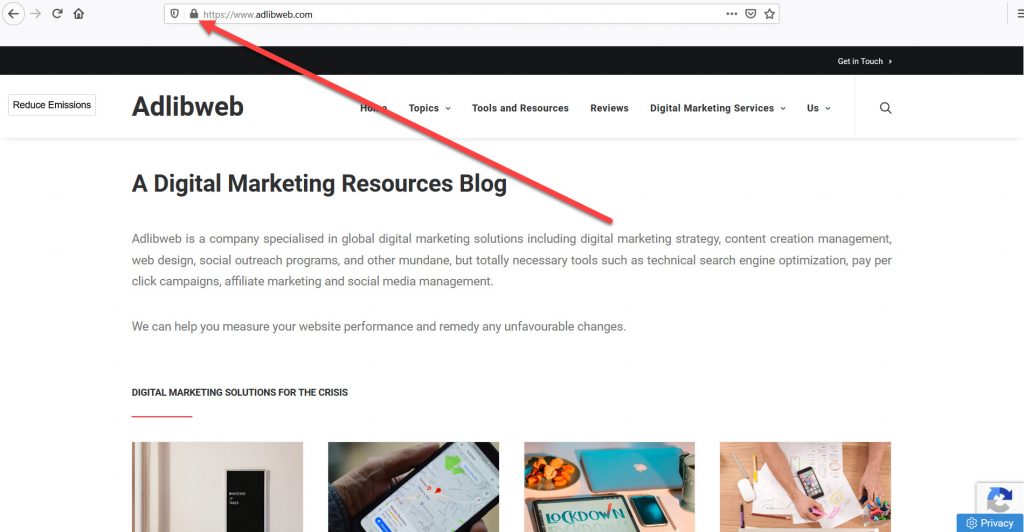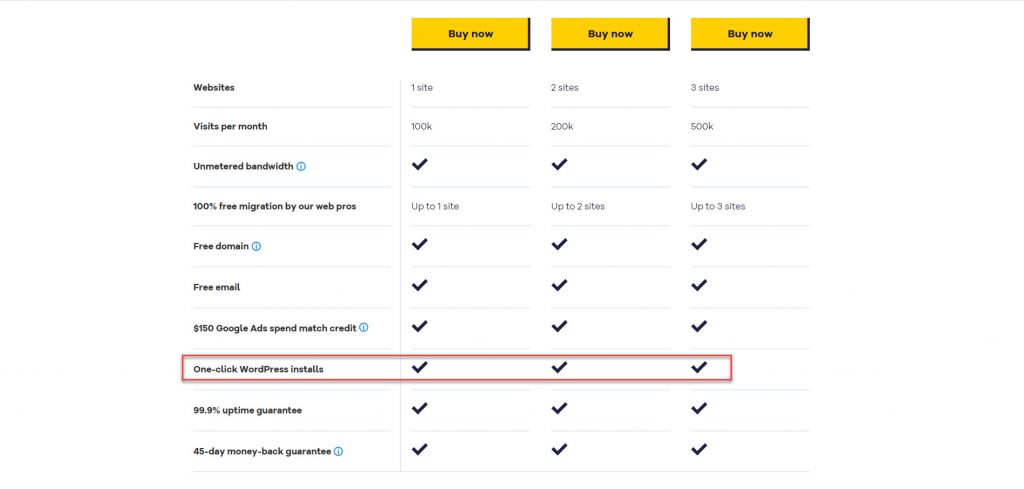Choosing Web Hosting for your Website: Considerations
Choosing web hosting for your website is an important decision in bringing out the best of your business. There are many different things to consider, and the article will help outline those considerations.
Quick Links
For instance, we’ll discuss how you can choose between shared hosting vs. dedicated servers. We’ll also talk about what types of websites might need one more than the other.
Each type of business has its own needs when it comes to web infrastructure, so this article should help you make that determination as well!
Type of Server
Among the different factors to consider for your self-hosted website, the server type should be at the top of your list.
There are four types of web host servers to choose from:
- Shared Hosting – Type of web server where multiple websites share the same webspace and bandwidth. Since all sites are hosted on the same physical machine, it’s easy to manage them all from one location.
- Virtual Private Server (VPS) – This is an excellent hosting option for a self-hosted website as you’ll get the physical hardware to create multiple virtual servers.
- Managed Hosting – A provider takes care of the infrastructure, security, and performance of your website. This way, you do not need to worry about the technicalities of running a website as you just focus on growing it.
- Cloud Hosting – Similar to managed web hosting, your website will be hosted on remote servers. This makes it easier for companies to scale for growth.
Based on the descriptions above, shared hosting is the ideal choice for brand-new websites. In addition, because you’re sharing the server with other sites, the cost of maintaining it is divided among site owners, making it the most affordable option among server types.
On the downside, you have to be more vigilant about security and protection — if one of the sites in the shared server gets infected, there’s a good chance that your site will, too unless you have security measures in place (more on this later).
In the long run, managed WordPress hosting is the best way to go. You provide visitors with the best performance for your website and get to focus on growing your business instead of dealing with the intricacies of web hosting and site management.
Server Speed
Server speed matters the most when hosting a website because faster servers support better performance and increased user experience.
This is evident more than ever now that Google has turned its Core Web Vitals into a ranking factor. This score computes the site’s overall performance, with speed being one of its most crucial factors.

Understanding how server speed works boils down to its bandwidth, which refers to the number of devices it can handle per second. The higher the number of users on a server at the same time, the slower it will be for everyone to access information from their browser.
To find out how much speed your website needs, you should consider these factors:
- How often do people visit your site?
- What kind of content does your site have, and what services are offered in that content?
- Do you offer downloads or videos with high-quality audio or video streams?”
There’s no one size fits all solution for deciding on hosting because every company has different offerings.
But, shared hosting is the lowest-performing among the four because you’re sharing your server with other sites regarding server types. So if a site gets a boost in traffic, the server puts more of its resources into managing that site’s bandwidth, thus compromising the performance of other sites on the same server.
Therefore, once your site accumulates thousands of daily traffic, you need to upgrade your site to any three server types above.
Also, another way to provide efficient loading times to visitors is by using a content delivery network (CDN). It is an extensive distributed system of servers that deliver content to end-users from the nearest server available.
For example, if your visitor is from Asia, the CDN will load the site from its server in Asia (or nearest to it) to the end-user. Due to the proximity of the server to the visitors, the page will load much faster compared to loading it from the server of your web host, which may not be in Asia.
There are different CDN providers to choose from that’ll help improve your site’s performance. But among the solutions available, Cloudflare offers a better visitor experience with your website and apps at no cost to you. It’s best to try this CDN first and see how much more efficient your site will be after using it.
Security
Web security is an issue that should not be overlooked when choosing web hosting. It ensures that your business, information, and customers are protected from threats such as DDoS attacks and spam.
There are many ways you can keep your site secure, and using HTTPS and SSL is the most basic of them all.
You will know if a site is secure when it has a padlock icon on the address bar just before the site’s URL.

To obtain this, you need to purchase a certificate from a site like SSL.com and install it on your website.
However, most web hosting providers bundle in the certification for free, so you can skip the previous step and follow the instructions of your web hosting regarding SSL.
Also, if you’re running your site on WordPress, you need to use security plugins to provide an extra layer of protection to it.
While WordPress is one of the best CMS out there, it’s prone to hacking.
You should also consider how fast your website loads and what level of protection it has against spam attacks when choosing web hosting.
Finally, aside from improving performance, a CDN like Cloudflare fortifies your site with its Web Application Firewall (WAF) and DDoS protection features, among others.
Reliability
Nobody likes a site that is always down or isn’t reliable.
At the same time, there’s no such thing as a site that’s 100% available at all times.
Therefore, you must strike a balance between making your site as available as possible while keeping in mind that there will be times during the year when it won’t be. This is because hosting providers must manage their servers to keep them in tip-top shape and provide peak performance for all their hosts.
When choosing a web host, you need to consider its uptime, which refers to the amount of time your web hosting service stays up and running.
High uptime means visitors can access your website at any given moment without problems, thus ensuring high customer satisfaction.
There are a few different ways to measure uptime, including availability and response time. Uptime is typically measured in days or hours of service provided per month that some hosts can provide, while others may only guarantee around 99% or even as high as 99.999%.
Ask web hosting providers their respective uptimes to help you decide which among them will offer you the best performance.
Customer Support
If your site is now generating lots of traffic, expect to encounter more issues with it because there’ll be more visitors who will voice out their concerns about not accessing your website for a variety of reasons.
This rings true even if you’re using the best web hosting platform available.
For a problem like this, the web host’s customer support is here to the rescue.
Their goal is to help you make the pain go away by fixing any issues your site has.
However, this is only possible if they meet the criteria of adequate customer support listed below:
- 24/7 availability or at least during the weekdays.
- Can be reached in various channels: phone, live chat, email, etc.
- Quick to respond (ideally within minutes)
- Provides real solutions to issues, not just sends you a link to their knowledge base without truly understanding the problem.
While these may be a tall order for most customer support teams, consider the scenarios if your website issues don’t get solved.
If the site is down due to server issues and the customer support can’t be reached for help, expect to deal with lost traffic and revenue.
Worse, if your site is unavailable because it was hacked, sensitive information about you and your customers may be stolen and shared with the public!
Therefore, make sure that the web host has a good track record with its customer support so you can feel at ease that they’ll help you with any issues you encounter.
Ease of Use
Web hosting can be a technical ordeal, and it’s important to know that you’re in good hands. The best web hosts will have an easy-to-use interface which makes all the difference between getting frustrated or having fun while building your website!
If you’re worried about a complex, time-consuming process to set up your website, it’s best to go with a web host that has a one-click install for WordPress.

WordPress is the most popular content management software, and it allows you to have custom HTML pages without having any coding experience or skills.
For beginners, self-hosted websites with WordPress available from popular web hosting providers are an excellent option for people who don’t want to invest time learning how to code their website.
Conclusion
When choosing the right web hosting for your site, you want to make sure that it meets all of your requirements. However, you also need a host who can meet your budget and one with enough features not to hinder future growth when your site starts generating more traffic or needs better performance.
By following the tips outlined above, you can be sure to build trust from your audience and generate as much traffic as you to convert into customers or clients!
What Is WooCommerce Product Slider and Why Your Store Needs It
Why Do Product Images Matter So Much in Online Stores? When someone visits an online store the…
0 Comments9 Minutes
How to Streamline Your Customers’ Shopping Experience?
The goal for any online store is to make shopping as smooth as possible. When visitors move…
0 Comments8 Minutes
Strengthening Brand-Customer Relationships Through Gamified Loyalty Programs
Creating lasting connections with customers has become increasingly vital as the marketplace grows…
0 Comments6 Minutes
How to Use SEO and SEA Together in Search Engine Marketing
In digital marketing, search engine marketing (SEM) plays a critical role in improving online…
0 Comments10 Minutes
Content Marketing Growth Hacks: Real Shortcuts to Drive Traffic
Are you still lagging in content marketing? Sticking to these old strategies seems…
0 Comments10 Minutes
How to Build a Strong Local Following Using Social Media Marketing
In the days of likes, shares, and stories, local businesses have a golden opportunity to create…
0 Comments9 Minutes
Why WooCommerce is the Best Choice for Your Online Store?
WooCommerce stands out as a top option for anyone looking to build an online store. This platform…
0 Comments8 Minutes
How to Use AI-Powered SEO Tools for WordPress eCommerce
SEO is a critical factor in the success of any e-commerce WordPress store. As competition…
0 Comments11 Minutes








